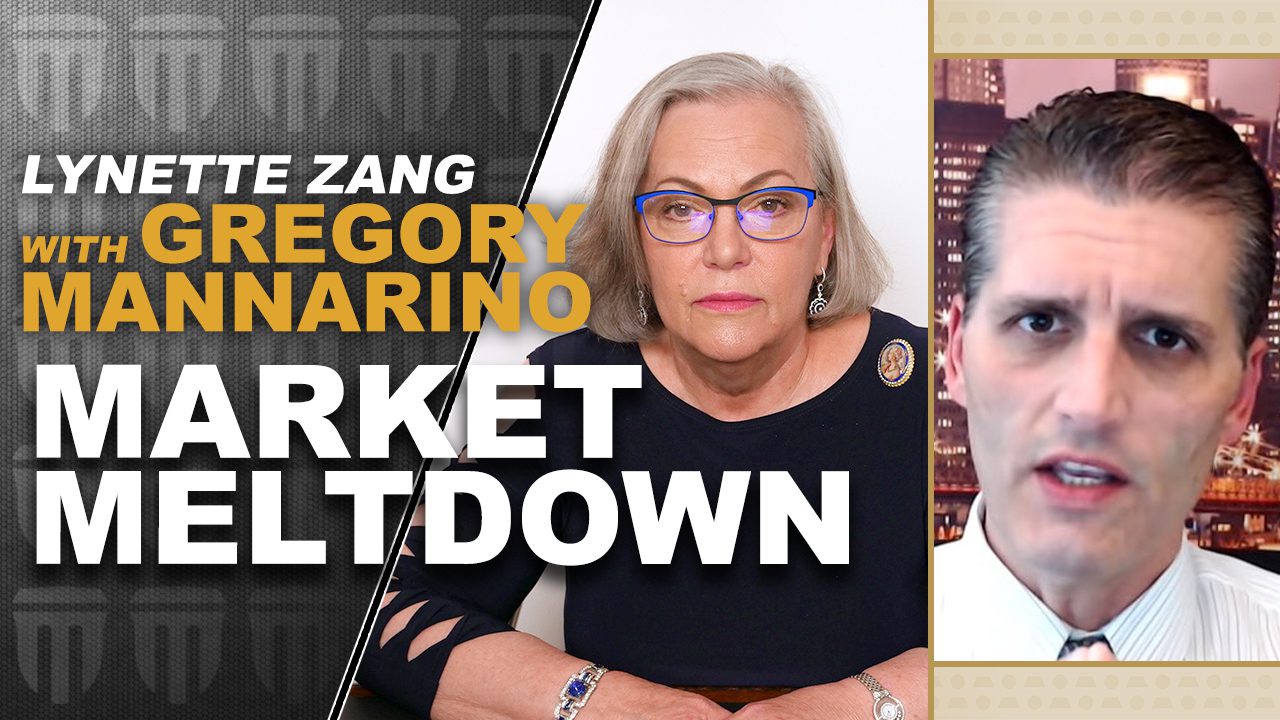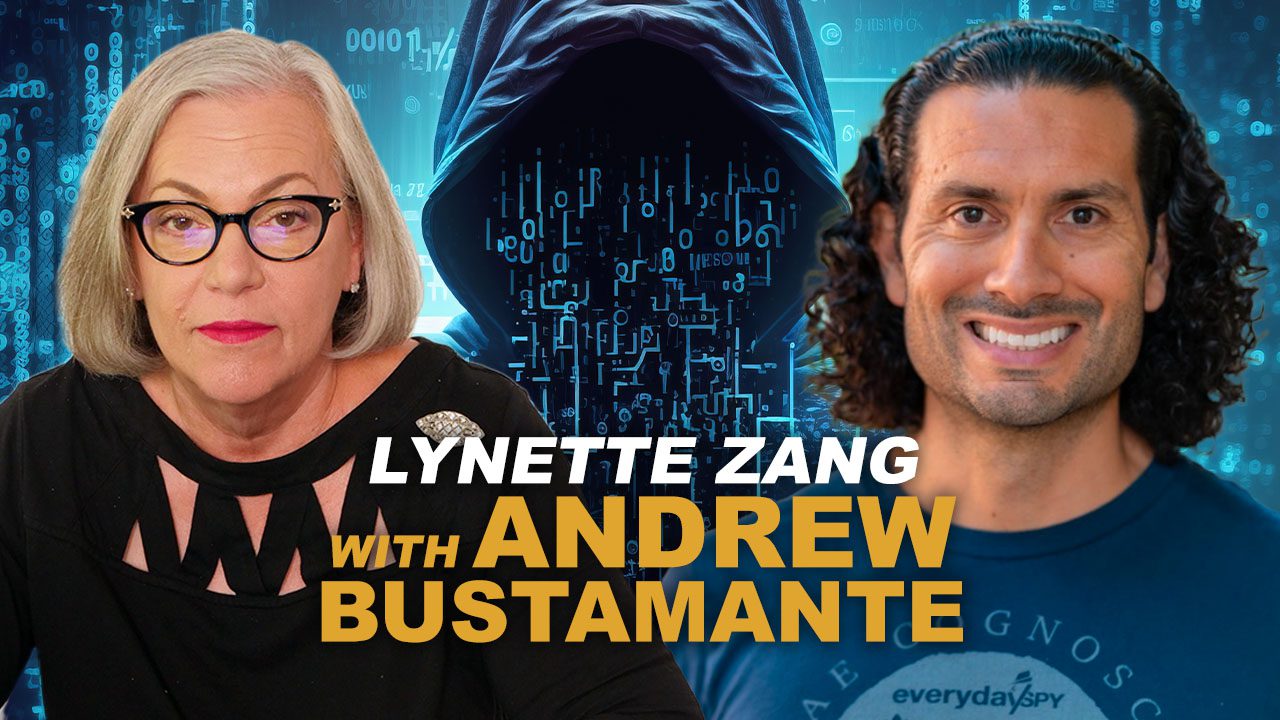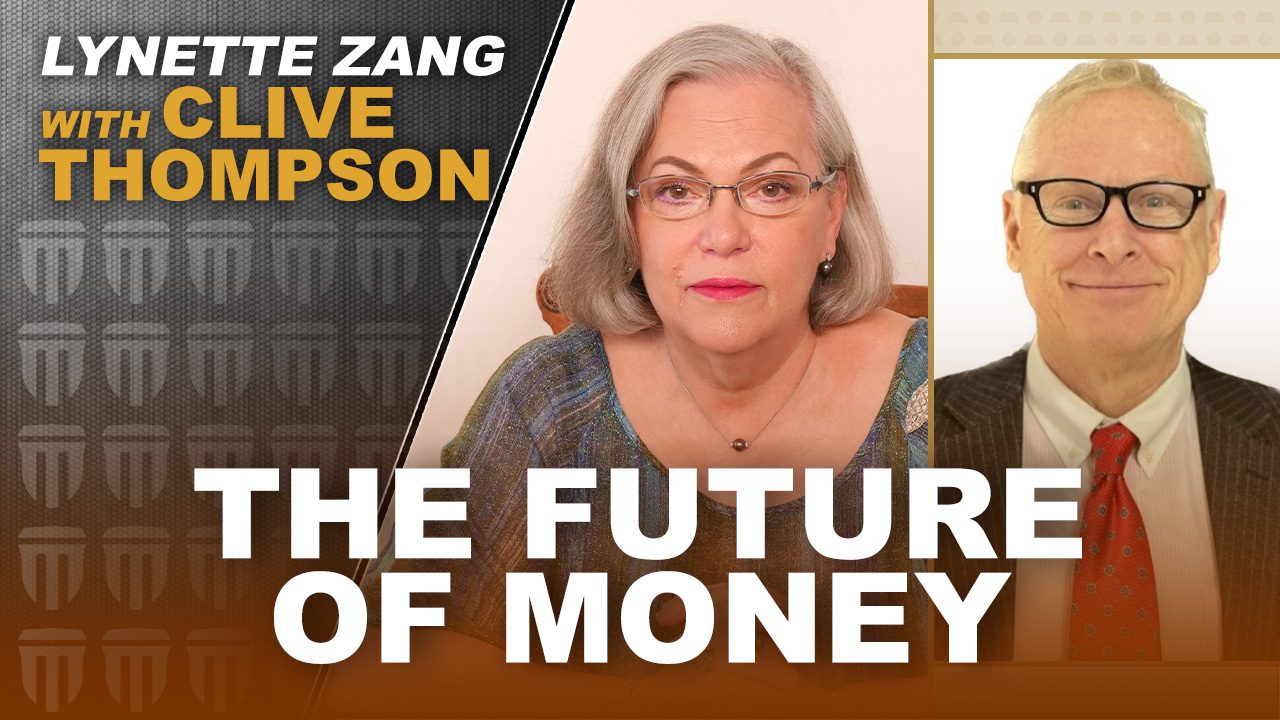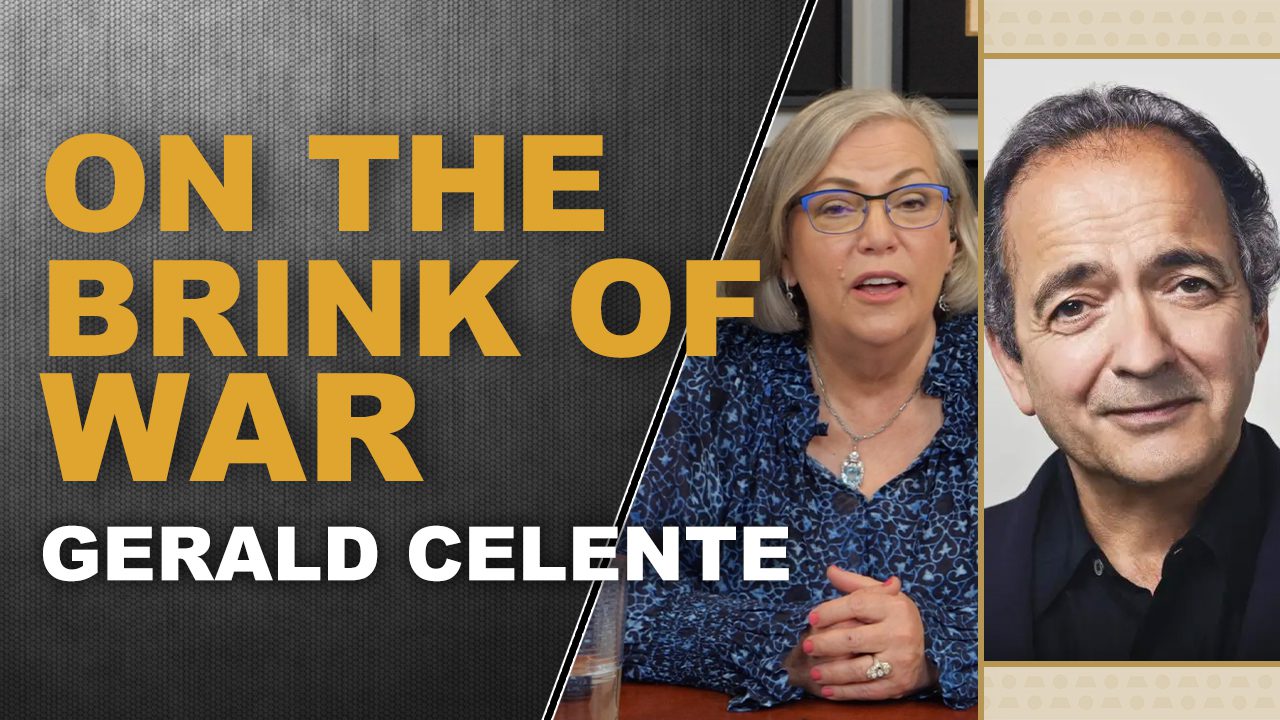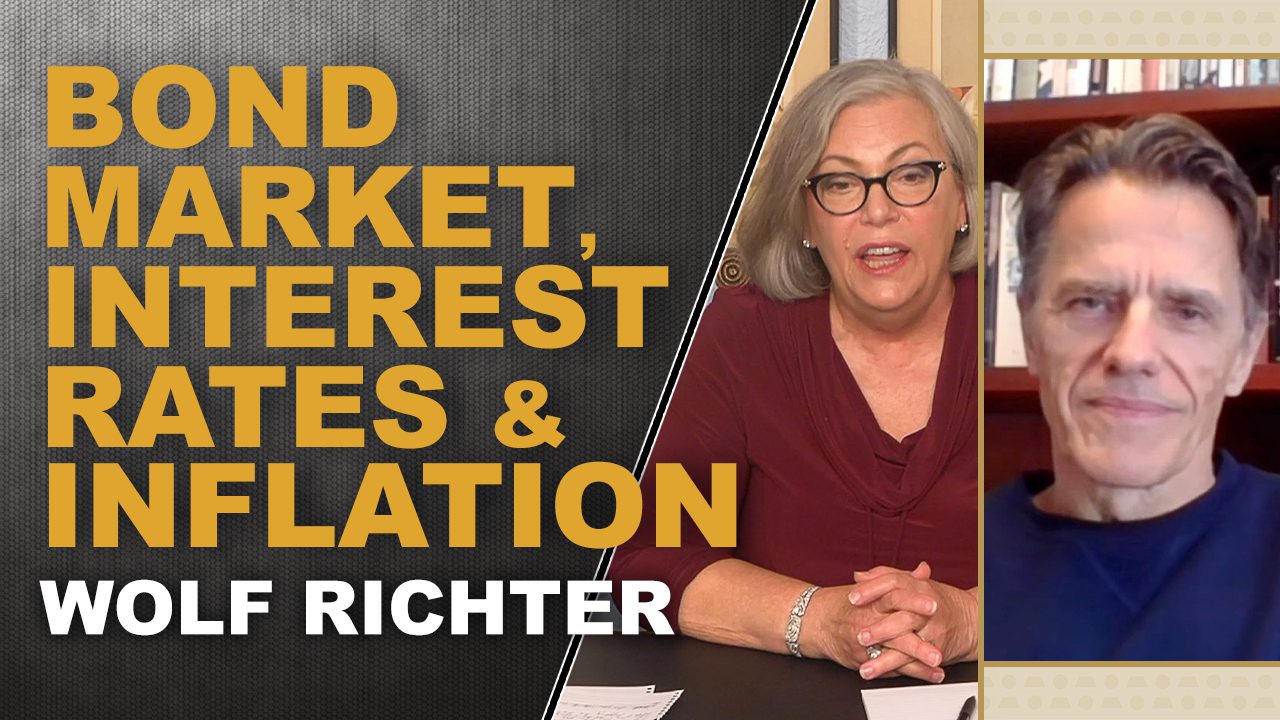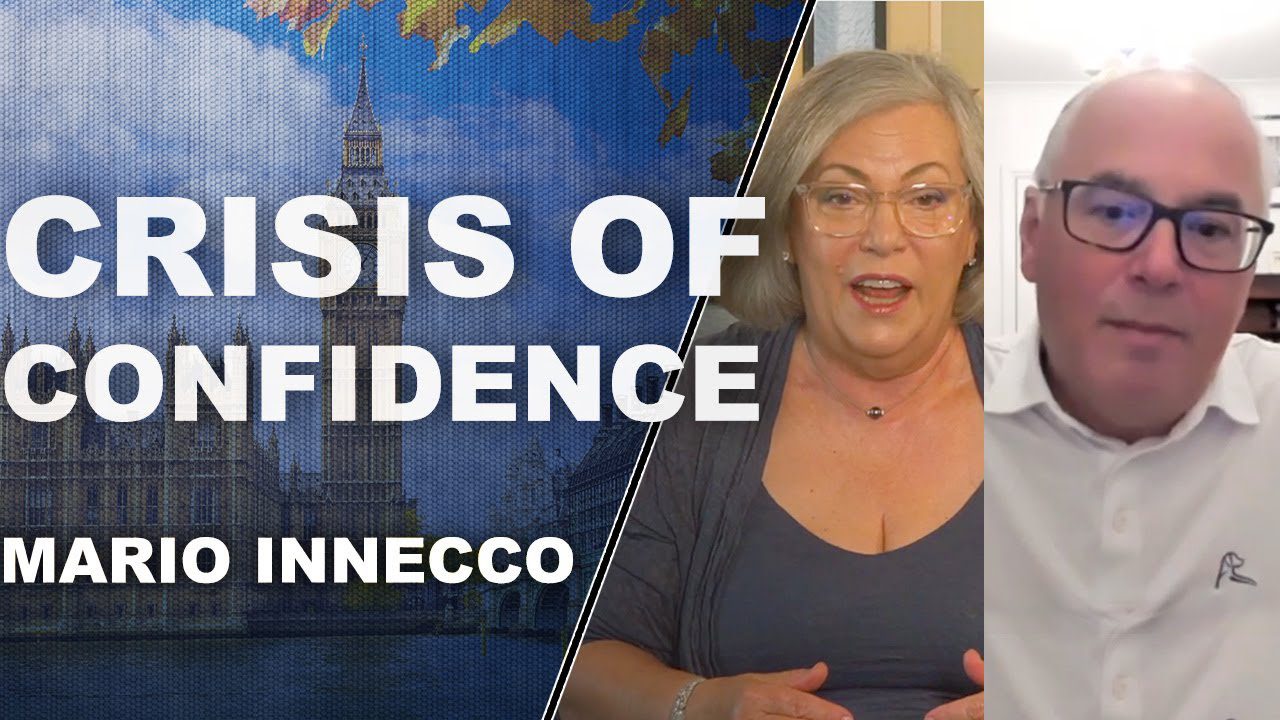How Gen-Z & Millennials Can Secure Their Future with Gold
Because if you don’t hold it. You don’t own it. Exactly. I am so excited to bring to you today one of our very, very excellent specialists in the strategy that we execute here at ITM trading. This is Keely Caul and she has kind of a similar background to me, just maybe not quite as long, but she’s been a stock broker. She was in banking with commercial real estate, which I think is a really important thing to have under your belt these days in insurance and in technology. So she brings a lot to the table. And we’ve been working together since 2019. And I’d like you to meet her and we’re going to have a conversation so you get to know her a little bit better.
TRANSCRIPT FROM VIDEO:
Because if you don’t hold it. You don’t own it. Exactly.
I am so excited to bring to you today one of our very, very excellent specialists
in the strategy that we execute here at ITM trading. This is Keely Caul and she has kind of a similar background
to me, just maybe not quite as long, but she’s been a stockbroker. She was in banking with commercial real estate, which I think
is a really important thing to have under your belt these days in insurance and in technology.
So she brings a lot to the table. And we’ve been working together since 2019, 2019.
And I’d like you to meet her and we’re going to have a conversation so you get to know her a little bit better.
Thank you so much, Lynnette. So today I want to speak about and ask you some questions about the new
Gen Z and Millennials
the millennials, Gen Z, and how they should be investing in gold and silver, as well as creating their own wealth shield like we do.
So basically the topic would be gold isn’t just for bankers and boomers.
Why Gen Z and millennials should pay attention. So what are your thoughts on that?
Because we are getting more and more phone calls and conversations. We’re having more conversations with younger generations, which excites me
because, oh my goodness, people are waking up, but sometimes they have some questions, right?
So what are your thoughts on that? Well, you know, I think that those younger generations are the generations that have grown up
getting more comfortable with losing their privacy and also with the technology.
And, you know, that’s that is called perception management. I mean, quite honestly, they should teach you in grade school
how money is created and supported. But if they were honest with you, you would go like, Wait.
Money’s created from debt. We all have to really do anything because you and I and
everybody out there, we have to work for our money. But central bankers, well, and governments, they just create debt.
So I think it’s critically important that any any generation,
whatever they are, really understands what money is
and how it is created and supported. The reason why everybody needs to have a foundation in
gold and silver is be physical. And this is key too, because you can’t do it with ETFs, intangibles.
Right. Physical in your possession. Because everything that that we were told about,
let’s say cryptocurrencies is right, that they go around the system. Well, I don’t know.
I think with Gary Gensler and what’s going on with the SCC should be pretty apparent if it wasn’t up until that point
with all of the Wall Street products that have been developed around this that is truly not outside of the system.
And it’s also dependent upon the grid staying intact and the grid is aging.
And so we know that there are a lot of challenges around that. So
this is real money. Physical gold. Physical silver is used in every single sector of the globe.
So so that’s the other piece that’s really important for people to understand that it has the broadest base of functionality
and the broadest base of buyer. And what I mean by that is it’s used
in the financial system, it’s used in jewelry, it’s used in art, it’s used in electronics, it’s used in medicine, it’s used in space travel.
And I could go on and on and on. So you have a lot of different entities
that buy physical gold and silver, because even though they’ve attempted to duplicate the features of those two assets
in a lab, they’ve never been able to do that. Right. Whereas when you’re looking at
any intangible assets or instruments, stocks, bonds,
crypto currencies, annuities, any of the other, where they want you to think that you’re diversified, those are all fiat money based.
And fiat money is government money by design created to disappear over time
with inflation, which is important because less think about this. The you know, that was one of the things that I wanted to bring up.
Incomes vs Standard of Living
Also our millennials, Gen Z, which all other generations as well as I mean
sometimes I hate putting people in those is great, but this is, you know, just looking backwards, so to speak, through history,
the the salaries and the income that these individuals are experiencing
and are earning now is not keeping up with the standard of living. So back in the sixties and seventies, where you could buy a house
or build a house for $36,000 and were able or less or less. Right. Yeah. And were able to, you know, live off of one income.
It takes a dual income, if not a dual income, plus additional jobs just to be able to rent and just just rent just to survive.
And children, day care, I mean, there’s all these other different things. So it’s it’s a very it’s just a struggle.
And that’s one of those circumstances that is because of the devaluation of the dollar.
Absolutely right. I mean, yeah, absolutely. By design. By design. And that’s the point that you need to keep hammering home.
And yeah, you’re absolutely right. I mean, my father was a developer and he built a really nice house.
So 1971 ish. I remember my mother, they used to work out of the house
and I remember my mother going, He’s a comer. He’s a comer. He makes $12,000 a year.
And this this guy was an engineer at IBM. But the average wage then was about 90 $500,
and a family of four could live off of that one wage. So somebody making $12,000, that was substantially, you know, more.
But but bring it to today. This is also and not just in the U.S.
this is actually creating a global crisis where people that are in that younger generation, I mean, in this country,
we were sold the American dream, okay, you work hard, you can achieve a lot. You can buy your own house, you can plan for retirement,
you can educate your children. You can have a nice life. And now people are realizing that that’s a lie. Yes.
Right. It’s very hurtful. It’s very I mean, is and it comes from a personal me
Student Loans
personally, I went through the 2008 crisis and I graduated with I don’t remember I think it was $40,000 in student loan debt.
I didn’t need to take it out. I didn’t want to take it out. But when you go through
and you go to college, like, okay, come to this line right here. This is good debt. This is great debt.
You know, you’re going to pay it back at this very minimal rate. 2008 hit. Then I lost my job at the time.
And at that point, you have to put it on hold. Well, that’s just pushing it down the road and it’s accumulating interest.
And that’s what these individuals are dealing with at this point, too, because it’s the sales is it’s the sales
and it increases the the education cost, which is ridiculous. Yes.
And there’s a couple good points in there because the government started guaranteeing student loans in the in the early nineties.
Right. And if you go on the Federal Reserve Education Department website, the Fred,
you can put it in there and you’ll see how it just looks like a hockey stick. And that happens 100% of the time when the government decides
to guarantee something, then it gets abused. You know, when I went to the U of A, my tuition
was 20 $500 a year. A year. I don’t know what it is now with You went to the U of A It
certainly was not then, but that was before they were guaranteeing the student loans.
Right. So, I mean, the cost of a college education, A you’re 100% correct.
It is a sales pitch. And now all of those student loans that had been
put on deferment for the last three years, guess what? They’re coming due again.
And the cost of everything is a whole lot more. Yes. And this is something that I got out of some some things that you had mentioned
LIBOR SOFR
and that I’ve researched the Limbaugh to. So for transition.
Yes. Two variable interest rate loans. Every every loan. Right. But yes, but in this circumstance, with student loans,
they have all these loans coming due. They’re going to be due, what, the end of this month, middle of next month?
I can’t remember exactly. They were pushing things July, but it’s right. But it’s coming out. So guess what? All of these people who have subsidized loans have been pushed back
for three years that have all of this interest, this backed up. They’re going to have to refinance that note, in my opinion,
on that new rate, because that’s what’s pushed and pushed through you. You have to modify it at some point.
You know, you have to do a modification, but that happens built into those contracts.
See, you and I, we have no rights right now. So built into those contracts,
the the lender has the right to automatically shift it from Limbaugh to so far
right now with derivatives, that’s a little different story. But with anything, mortgages, student loans, car
loans, credit cards, any of those things. And they’ve built in that safe harbor
so that if you open up your student loan and, you know, maybe this is part of a tactic, I mean, I’m not as trusting
of what gets set up by the government in the central banks as some people are.
But that’s because I read their stuff all the time. Right, Right. But when that transition occurs,
the lenders could then send you the next statement
and your principal balance that you owe could shift
because those the LIBOR sofr interest rates are different. Even even as they’ve jury rigged.
Right. Right. Now, whether or not it’s going to depend on how obvious they want to make it
as to when they’re going to keep it hidden from you or when they’re going to reveal it.
Right. Okay. That that’s the big question, because you know darn well lots of things
are happening underneath the surface with with that all of the debt instruments.
Right. Right. You know that the debt bubble has been popped by the raising the central bank increases of the interest rates.
They created that debt bubble. Now they’re wanting it to. Yes. And because they need a big enough crisis to scare people, enough to accept
the next iteration of the financial system that they want to put in place. Is no problem.
But is it problem, solution and never, never let a good crisis go to waste?
That’s right. Right. And that’s and that was another thing. You mentioned something about, you know, being able to control the narrative, being able to control the people, somewhat
Instant Gratification
perception management, which is a real program. Right. That’s something you want to definitely read about.
That blew my mind. So what I was also going to say is that we are in such a immediate
gratification. Oh, yes, we’ve been good short term ism. Has been. Yeah, exactly. So with that being said, we are being conditioned
and especially the younger generations as they’re coming up. Right. Conditioned to say, Oh, we have to have this immediately or.
I want that coat, I want that vacation. But then maybe, maybe not even the coat, because now it’s all about experiences, right?
Not assets don’t accumulate assets just accumulate experiences.
But that doesn’t help you when you need money. Exactly. You’re not going to be able to trade that in or sell that back or do what you need to do.
Physical assets for sure. Well, the expense rinses or the instant gratification.
Mm hmm. Instant responses. The dopamine. Mm hmm. You know, that kind of thing is also going to usher in the,
I say, central bank, digital currency, but also a social credit score, because everyone’s going to want to be in compliance.
They always want to do the best, you know, be the best, that kind of thing. And with the younger generations, we’re already used to the likes and right.
And all of that things right that mean. So it’s just another way to get it implemented.
Yes. And and, you know, let’s face it, they know technology companies and technology and government.
I mean, I did a piece on this a while ago, how they really are working hand in hand. They know how to get you addicted.
Right. Right. They know how to do this. And so they use those
that knowledge, and especially with a I coming up and the deep fake I mean,
how is anybody going to know if what they’re hearing is true or not Takes us back to physical gold and silver in your possession
because no counterparty risk. It’s real. You hold it, you own it not. Right.
And there are ways to even know if this stuff is fake. If you have a magnet. Exactly. Gold and silver are not magnetic.
So even if you have a magnet, that’s your first. Oh, this is real. Where it’s not right.
That’s another part. Like this is you’re holding history in your hand to those in school. When I bought my first coins.
Background and Experience are Important
Yes, but this is what my grandparents used to give me for days and just holidays.
And I just felt these were the coolest things, which is what I do, too. I’ve been I’ve started to do it for nieces and nephews.
Absolutely fantastic. And they get excited about it. They know it’s totally different, but that is so memorable and you keep it.
And it’s been passed down. Your your is this a great
experience for you to give a gift as well as for them to receive it? And it gives you some historical background that you can teach. Yes.
Get in school. You aren’t going to get it in school and and understanding history. You know, people with that short termism.
Oh, well, that was 15 seconds ago. This is now. Right. But what everybody really needs to understand
is that life builds upon life. So, I mean, I wouldn’t be where I am today
had I not stayed inside of, you know, banking and stock brokering and the tangible assets.
It’s like this experience and the life experience. Having lived through the transition in 1971,
having been there on Black Monday as this new stockbroker in 1987,
I mean, having had that life experience, you know, if you’re consistently changing jobs all the time
and it’s not in the same area, how do you become an expert in anything?
Right. That’s my question. How do you you can’t write, you set.
Contracts
I mean, you can self your research and everything else. We’re not going to be an expert without those life.
There’s life experiences where you have to maneuver and figure out what’s exactly that. That’s what I like
so much about your background because it is very similar to mine, right? In that you’ve been a stockbroker and you’ve been a banker
and you’ve worked in Asia. So all of these very complicated contracts,
because that’s all this fiat money stuff is, it’s just a contract that you didn’t write, you didn’t read the fine print.
So knowing that you’re not going to read the fine print. Whose benefit do you think that’s written in for your benefit?
Oh, no. Oh, no, no. But you know this because you’ve worked in all those areas, and I think that’s critically important.
You want somebody that understands the language, Right? Right. Because this stuff is made intentionally complex so that people.
Oh, well. Oh, I don’t I don’t understand that. But they must understand that. Guess what? They don’t understand it either.
They create these derivative monsters and these so, you know, these contracts that are so complex and they admit
they admit and I’m talking about the ISDA, the IMF, the CIA, the whole alphabet soup, the Federal Reserve, the FDIC.
They all admit, yeah, we don’t really know the true value that’s at risk because they allow it to get that complicated and convoluted.
And they say, if it’s really complicated, nobody questions us.
That’s right. Well, it’s time to ask questions, you guys. No kidding. And even in with our generations,
Ask Questions
the younger generations, we have to ask questions. Like I said, we’ve been conditioned to not ask questions.
You’re just supposed to fall in line. You’re seen, but not heard. You know, those types of things. That’s what I grew up with,
and I was always the one that asked the questions and got in trouble. And me too. I got wiped under the table.
I didn’t. And my parents are just like, there are certain things that you do not discuss and this is one of them. And now it just doesn’t matter.
But that’s why it’s so important for me to educate my children as much as possible.
Absolutely. Encourage them to ask questions. And that’s why on the videos I give you the links
not to all my research because everyone would be a book, but to those that that actually make it on to the slide
and sometimes a little bit more so that you can do your own due diligence. And that’s what I would say.
Don’t take my word for it. Don’t take Killie’s word for it, don’t take their word for it. Central bankers and governments, their job is to keep you calm
and keep you in the system because it’s so much easier to rob you that way.
They want that compliance and you’re not going to know it at first. They’re going to keep it like as close to what you’re
used to as possible until you are so embedded in the system. And then it doesn’t matter.
Then they’re taking you bam, read their documents. There are no limitations
to how low they can put negative interest rates are just a choice,
right? They’re a choice. They’re not really a thing. Well, why are you going to work your butt off
loan Somebody money and agree to take back less than what you loaned them?
So it’s true. The only one you’re doing that for are your kids, right? That’s true.
You’re right. You’re right. It’s the only one you’re going to do that for. But but they’re trying to tell you that this is real.
But once they take us to CBD. CS They have said the central banks have said
they can have their finger on the button of the economy. 24 seven because right now from policy
to when it trickles through to the the economy takes near 12 to 18 months.
But once they have cbdcs, then they’ll do it in real time.
And if you’re not spending money because we’re a consumer driven economy, you’re not spending money, well, then you’ll sit there and watch your principal evaporate.
And what are you going to do? You’re going to go out and put it in anything that you think is going to maintain its value better.
Look at Zimbabwe. Did you see their stock markets up over 600%? Oh, no, I did not see that. Right.
Oh, yes. Sorry. No worries that you know why? Because people are fleeing the currency that’s losing its value.
Now they’ve come out with a physical gold coin. But who can afford that? Just the elite, not the general population.
They they have now come out with with a supposedly gold back digital currency,
except you cannot convert it into the gold.
So who trusts that it’s there, right? Unless you can convert it. Right, it doesn’t mean anything.
So the population has lost all confidence in them. So what are they doing?
They’re running to the stock market. But the problem is, is the only thing you can convert your stocks,
bonds, annuities, all that crap into our Zimbabwe dollars.
Repeatable Patterns
And last time I checked, a trillion times zero is still zero. Right? That is the word for my.
And it has to blow everyone’s mind because in the U.S. we have not experienced this type of devaluation
revaluation to this extent. Well, at least at least in our lifetimes, because the Revolutionary
War, the War of 1812, and there was one more. Well, they don’t teach you about that in school anyway.
So in our generations or what we have experienced, nothing has happened and correct like this.
Correct that. That’s why I’m so glad to be 68. I’m serious because I was like a teenager
when we transitioned from the gold standard to the debt based standard. And I remember I mean, there were just repeatable patterns, just like it is quite
clear, I’m sure to all of our viewers that you are at a much different stage in your life cycle, Right, than I am in my life cycle.
Right. Well, currencies and economies, it’s the same thing. You just have to know how to recognize the pattern.
Right? Exactly. And I know I didn’t grow up knowing all of this about gold and silver.
And I started questioning things in the banking industry. Right. Found out the bank president owned gold and silver.
I didn’t understand exactly why, and I just kept pressing. So I opened up a bunch of doors for me to research.
But you learned from Uncle Al, is that correct? Oh, yes. Love figure that story and let them as well.
Okay. And you know, understand this. This was in the sixties. And at that time it was illegal
Uncle Al
to hold more than five ounces of gold. Say that one more time, because no. One, when I talk to people on the phone, they’re like, illegal.
What are you talking about? Right. Well, in 1933, right. Right here. Okay. Let me back up to move forward a little bit.
All right? Because when we were on a gold standard and you could go into the bank with with a $10 bill and walk out
with a half an ounce of gold or $20 bill and walk out with an ounce of gold.
Right. And so what that did was it gave the public power over the government because if you did not like what they were doing,
you would walk in with the bill and you would pull gold out of the system. And then that created restrictions around
how much debt the government could grow. So the public had the power.
Plus, if they wanted to tax you on a gold standard, you’d know it. And so they wanted a way
to be able to tax you without you knowing it. Additionally, corporations
wanted a way to pay you less, but they knew if you were used
to getting ten bucks an hour, you were not going to accept five. If, however, you could make that ten bucks, spend like five,
then the profit margins would go up and you would not know that you were actually getting paid less.
So this goes back to what we were talking about before. So in 1933, they took the gold away from the public.
It’s still and they revalue to the currency. So it was still kind of backed by gold
and foreign governments could convert their dollars into gold. But the public could not.
Hmm. Right. So that’s when the shift really started to occur in 1913 because they shifted it then too.
But that’s when the shift occurred. So between 1933. And was it 1980?
Well, it was 1971 when they removed the backing. I think it was 1986 when the first coin was gold coin was issued.
I think you’re right. I think that’s right. Okay. Yeah. And so so by 1968, though, and when they confiscated the gold
other than in pre 33 form, which is that coin, they’re right here
because Treasury secretary wouldn’t know knowing what they were doing with the currency, knowing that they were going for devaluation.
He and his friends wanted to continue to accumulate gold on, you know, quietly and unobserved.
Right. I mean, if you were a jeweler or you were a dentist, you could certainly buy gold. But everything was was viewed.
So he owned this type of gold. Correct. And he wanted to continue to and accumulate it legally.
Legally. So he wrote the caveat in there. But for everybody else, I mean, you could accumulate in that way.
But for everybody else, they you know, because people don’t read the fine print,
they thought, okay, well, it’s just an old relic now. And I can’t I can’t hold it more than five ounces.
But my Uncle Al was a major antique dealer back East, and he was my favorite uncle. So I was very close to him.
And so he taught me how tangibles move. But my parents and I were at his house one day and he said, Come here,
I want to show you something. And he took us into a back bedroom where he had two tall floor seats.
Now, I was ten years old. It was 1964 and I was ten years old at this time. And I can’t tell you that I understood the the importance of that experience.
But he opened up these safes and he said to us, If anything should happen to Aunt Birdie or to me
and Birdie, his wife would be well taken care of for the rest of her life because of what’s in these seats.
So I turned around and looked. Now I didn’t understand how much was in there, but you couldn’t
fit even one more $20 gold piece in it. So he had the kind of gold that was that required
no overseeing to legally accumulate it and knowing now
how much that was, my bet would be probably three monster boxes in each safe.
So probably at least 3000 ounces when in any other form it was illegal to hold more than five.
This is critical because you could use it in the normal marketplace, whereas any other kind of gold you couldn’t at that time.
And with what we have coming up, there are going to be so many opportunities. If you can hold your purchasing power to grow your wealth.
So not just sustain it, but to grow your wealth. Absolutely. So that’s why we talk about the shield is made of metal, not a paper.
So I promised to hear from Asperger. I have questions from all walks of life,
all different ages that don’t know what they don’t know. You know, it was by design. So with that, you know, we know that the last 30 years
we have an idea of the future of just based on what’s coming down the pike.
But what would be the very best advice that you would give someone like me
or younger or anybody but anybody? Because really, so much of what I do is frankly,
about my children, my grandchildren, my great grandchildren. I figure I’m going to live another 32 years.
So I’m old. But they they’re going to live a lot longer than that.
And if if any of you and if you haven’t, I would suggest you look at the World Economic Forum.
Oh, yes. Who says you will own nothing and you will be happy? But here’s the reality.
The reality is, is that somebody owns every single asset on this planet.
Right. And if you don’t own it, that means you got to rent it, whatever it is that you need, which is happening now.
Correct. Can’t afford to buy anything. Exactly. And gone dictates that rent well as the owner of the property
and exactly so opportunities there’s always opportunity and crisis.
So what I can tell you is, number one, you have to be as self-sufficient
and independent inside of a community as you can possibly be.
Because if you are dependent upon the government and the central bank, then they’re dictating everything.
Hello, Social credit score. Hello. Renting everything. Hello. Surveillance economy. Right.
So that means that you need to have food, water, energy, security,
barter, ability, wealth preservation, community and shelter.
Now, where I started is if you’ve managed to accumulate or if you haven’t managed to accumulate,
this is the foundation of your money. So even if you haven’t managed to get everything else
done, for me, silver is about barter ability, right? Gold is more about wealth preservation and opportunity positioning.
But you know, you want to set this foundation, but
then you need to make sure that you have every other base as much as you can. And it’s it’s daunting, right?
You go, Oh, my God, how am I going to do that? Yes. Well, how do you eat an elephant? One bite at a time. Voila.
So you look at where am I most vulnerable if you don’t run on any gold and silver, that’s where you’re the most vulnerable.
And there are different sizes to accommodate different budgets and all of that. And Gili can tell you more, more about that.
And gold and silver in any form you need to understand is monetary at its base.
Okay, so there are a number of ways to accumulate, no matter what your circumstance is.
And then you want to stand back you that where am I the most vulnerable and you build that in
and then you step back again and you go, okay, where are my most vulnerable? But if you can also find a like minded community.
Yes, absolutely. Right then. Because it takes a village. Exactly right.
One person can’t do it all by themselves. Right. It just doesn’t work. Does it happen?
Which that’s why so many people, when they call in to item, there’s only so much that we can share on YouTube.
But once they call in and speak with Esther, like, Oh, okay, these people are my people,
I am their people, and then they just talk. Which brings me to something else, and then I want to ask,
So this is from and I shared this with you, Mr. Ryan sent this to us and it’s his fortune and his fortune cookie.
This is from a few months ago. Oh, and he said, I want to make sure that you keep this.
And it’s as if not from trees. Where does money come from?
Oh, and he kept it for us and he sent it in. And Mr. Romney’s been a client of mine for years, but it makes sense, right?
So like minded people understanding that it’s worthless, right. That that it can you you know, I mean, you want to see where money comes from,
right? They just print it from debt. That’s what they do. Right.
And because it’s so abundant, I mean, there’s an unlimited amount that they can create an unlimited amount that they can create ceiling.
Exactly. Suspending it, what have you. But what that also means is every time they do that, the value,
the purchasing power value of the money that is already out there declines.
Exactly. And you know that because of inflation, the cost of everything. Now, this stuff takes energy and effort
to pull out of the ground, to mine it, to mint it. Right. Right. So when we’re on a gold standard, you’re trading your labor for their labor here.
You’re trading your labor for debt and it’s declining. Right? It’s declining.
And I mean, I’m we’re in a bad way because the the increase in the interest rates is popping that debt bubble
because we have to transition into a new system where we’re at the end. Right. It really is. You know, look at look at the purchasing power chart on the Fred
Purchasing Power
and you’ll see we’re at the end or just look at your grocery bill. You can’t go into a store without walking out
with a armful of groceries for over $100. It just doesn’t go easily. And I’m not talking about extras.
I’m just saying basics. Well, look, I mean, these days is this is so sad.
But these days, people are using those new debt accounts where you can break it up into payments
for their groceries, for their necessities. I don’t even I know what you’re talking about, too.
I see it. Yes. Or not affirm. I think there are a couple of them. There’s a lot goes. Just break it out to $40 over 12 months going $40 month for 12 months.
It’s like, oh, my gosh, people are actually using this to buy food. Right. Right.
You’re talking about you’re going to be a person, you know, versus. Yes, I do.
And that’s bad enough. I mean, if you can’t afford the purchase, don’t buy. Right. Right. So, you know, you’ve got to.
Yeah. The short term is it goes back to I want it and I want it now. And that’s really you know, if they have their way,
whatever equity you do manage to accumulate will be put into digital form are broken down into itty bitty pieces.
So rather than them coming in and taking it away from you, which you would notice, they will encourage you to spend it kind of like.
And then who do you complain? Collect some buttons, right? I tell this a lot. Yes, you have to say it because I butcher it every time.
Oh, all right. Well, would be like if I went into your house every day
for 30 years and I took one button At the end of 30 years, I’m
going to have a lot of your buttons, but you’re probably not going to notice it. If, however, I go in today
and I take 98% of all of your buttons, when you go to get dressed tomorrow, you’re probably going to notice it.
So that’s the difference between inflation and hyperinflation, Right?
Right. And, you know, it used to be I remember a day when inflation was a bad thing.
Then it became a good thing, right? Because it makes things look it creates nominal confusion.
So it makes things look like they’re worth that much more when it just really hides the value
of the currencies decline, right? Yes. Now it’s a bad thing again, because fast inflation, people notice slow,
you know, and they they call this price stability. You know, a price stability is Now you would think that means
while the price of bread or eggs or whatever just stays stable. Right. Price stability.
No, no, that’s wage. Price stability is what they’re really talking about.
If inflation is at that 2%, you don’t ask for more money in your wages,
but when it ratchets, it’s head like it has and it’s much more quick. Well, what do we see?
We see higher wages and they don’t want that. It’s okay for that that income and wage
inequality for for corporate presidents that used to make 20 times their worker to make 3000 times the work.
That’s okay. And corporate profits and all time highs, that’s not causing inflation either.
This isn’t causing inflation. Oh, no, no. It’s wages. It’s people asking how dare they ask for more money?
How? Hey, didn’t know. One of the one of the chief guys over the Bank of England said, you know, stop crying about it.
Just get used to it. You’re poor. I mean, didn’t even think about what comes out of their mouth
before they say, Oh, my Lord, sometimes they don’t. I sometimes I just think, Oh, some of the things, I mean everything.
I mean there’s, it’s what is, is hidden in plain sight. And they say it out loud, but they like the old way.
Go right over the heads of a lot of people unless they’re actually looking into it. But they have individuals so scared to lose their job,
so scared that they’re not going to be able to make their bills or, you know, do anything that the kids, the people are down.
Quiet Quitting
Just get down, keep working. Because that was the mentality where stop or stop. Right? Right.
Because that’s really a global phenomenon that’s happening in China. They call it the lay down generation where and in this and you know
look at all of the loss of yeah the quiet quitting I mean it’s people just
they don’t step up because they see that they can never achieve the American dream. They can never achieve the Chinese dream or I mean, it’s happening
all over the world where the younger generation is just really disappointed because no matter what they do, they can’t achieve that.
And they and and that’s because we’re at the end of the currency’s lifecycle that that is really one of the key things that you just can’t.
Right. Because there’s virtually no value in the currency left and that’s the only thing. Keeping this whole thing together to this point is the public confidence,
because the rest of the layers of confidence are gone. Gone and gone.
Bank to bank, central bank to central bank. And as of last August, markets to central bank,
remember that saying don’t fight the Fed right now. You got the markets fighting the Fed, which is why we have
all these dislocations, cause we’re at the end, Right. It’s just that simple.
Position Yourself
So you want to be in a position to weather it right here. This is your start, right?
And like I said before, you have a community with us at ITM, but there’s also something
that Lynnette has as well, and it is beyond gold and silver. So if you have questions about that, she can review it right now
because I am the the gold and silver person and I get questions about it all the time and I never know exactly how to answer.
You’ve been to my house, right? Absolutely. Oh, my gosh. Okay, fantastic. So I started Urban Farm.
Right? Right. So beyond gold and silver deals with food, water, energy, security,
little bit of barter, ability, community and shelter, because these are all the things that we need to sustain a reasonable standard of living.
Right. So wherever you are the goal with that’s that YouTube channel is wherever you are, we want to meet you.
If you’re in an apartment and you don’t have a lot of land. Okay, We’ll show you how to grow food
on a shelf, on a normal sized bookshelf. You know, if you do have land.
Okay. Starting out. I was not a gardener when I started this, but I knew how critical it was.
Right? You know, Solar, how can you keep your energy going, You know, So it hits on all of those things.
And then inside of that, we have the Thrivers community, which is really cool.
I’m a member of the THRIVERS community and I see all different articles on there, all comment from time to time or share the newest video for my team.
So I’ve really gotten a little bit, well, a little bit more involved than I was a few months ago when we launched.
But it’s been really neat just to be able to see that because what’s really happening is everybody is coming together.
They’re either they’re part of it or they’re not part of it. Right. Right. And they’re sharing their experiences, their expertise.
So that’s what a community does. It comes together and it helps each other. And it’s all over the nation.
Yes, it’s actually all over the world. Okay. We just set up groups, too. So if you live in the northeast.
Oh, I didn’t know that just happened just a little while ago. Okay. So wherever you are.
So there is even an opportunity for people to physically come together. That’s what I’ve been. I was going to ask about that later. Okay.
So that’s what people are asking for. They are they want to know where in their area are people that are like them, that can help them.
And that is something that I am so happy that that’s been done. Me too. Me too. So. Right.
Well, other than that, I think we’ve covered about everything. Thank you for answering my questions.
It is my pleasure. Thank you for asking them and thank you for being here. This is great. So Keeley call.
She is awesome. Thank you. Lynnette Zane. Awesome.
Until next, we meet. Keep in mind, wealth shields are built up.
Call metal in your possession because if you don’t hold it, you don’t own it.
Exactly. And then tell that as we meet please be safe out there. Bye bye.
